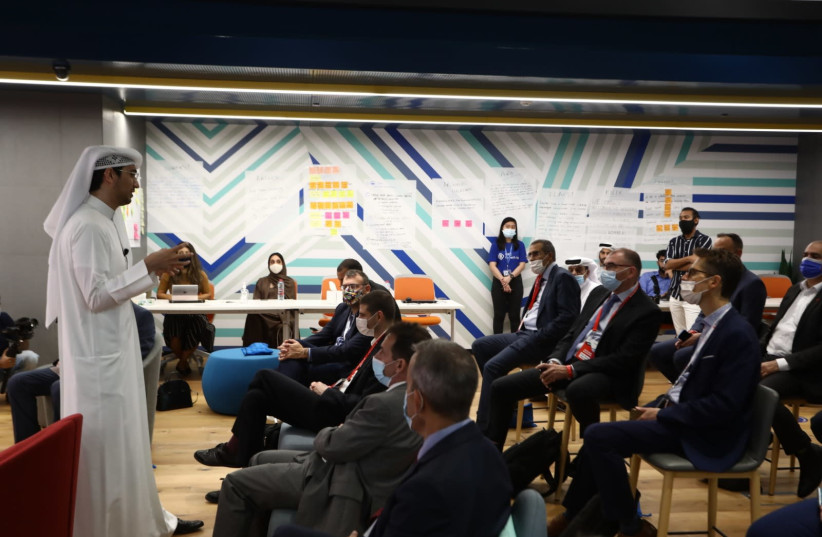The basis for our participation in the Gitex innovation conference was laid in September this year, when a delegation led by Dov Kotler and Reuven Krupik, President and Chairman of Hapoalim Bank, traveled to the United Arab Emirates. They met with senior representatives from local government and the economy, signed co-operation agreements with the two largest banks in Abu Dhabi and Dubai and memoranda of understanding on the country’s areas of trade and laid the foundations for co-operation in the future. That was also when it was decided to set up a delegation to the conference, in collaboration with the Israeli Export Institute in the Ministry of Economy. After the professional committee selected the 200 entrepreneurs who took part in the delegation, we left.
cnxps.cmd.push (function () {cnxps ({playerId: ’36af7c51-0caf-4741-9824-2c941fc6c17b’}). render (‘4c4d856e0e6f4e3d808bbc1715e132f6’);});
if (window.location.pathname.indexOf (“647856”)! = -1) {console.log (“hedva connatix”); document.getElementsByClassName (“divConnatix”)[0].style.display = “gin”;}It is important that each side finds out what areas of content are of interest to the other side, and where they need help. For example, the Emirates does not need us in the field of construction, but we can provide them with a technical solution aimed at reducing work accidents at construction sites. Technology is of great interest to them, and there is a great demand for knowledge and experience in areas such as smart cities, big data, fintech, medtech, agtech, autonomous vehicles, and communications solutions – areas in which Israel has regarded as a major country. Our job is to identify and bring together Emirati customers with Israeli companies and entrepreneurs who specialize in these areas.
“I do not expect even ten Israeli companies to sign agreements with Emirati entities in the next two months. Expectations always run a little ahead of reality. The bank will consider it successful, in a few months, Israeli companies and entrepreneurs will continue and deepen their interactive communication with their Emirati peers, considering the trust original and gaining confidence. Overall, I think we are doing something very important here, with a real reason. We are laying the foundations for economic peace – because we believe that economic equity can bring peace to this region. “
